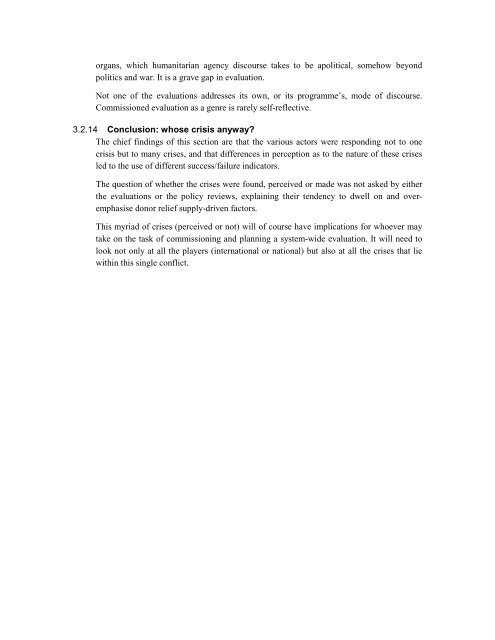Download PDF - ReliefWeb
Download PDF - ReliefWeb
Download PDF - ReliefWeb
You also want an ePaper? Increase the reach of your titles
YUMPU automatically turns print PDFs into web optimized ePapers that Google loves.
organs, which humanitarian agency discourse takes to be apolitical, somehow beyond<br />
politics and war. It is a grave gap in evaluation.<br />
Not one of the evaluations addresses its own, or its programme’s, mode of discourse.<br />
Commissioned evaluation as a genre is rarely self-reflective.<br />
3.2.14 Conclusion: whose crisis anyway?<br />
The chief findings of this section are that the various actors were responding not to one<br />
crisis but to many crises, and that differences in perception as to the nature of these crises<br />
led to the use of different success/failure indicators.<br />
The question of whether the crises were found, perceived or made was not asked by either<br />
the evaluations or the policy reviews, explaining their tendency to dwell on and overemphasise<br />
donor relief supply-driven factors.<br />
This myriad of crises (perceived or not) will of course have implications for whoever may<br />
take on the task of commissioning and planning a system-wide evaluation. It will need to<br />
look not only at all the players (international or national) but also at all the crises that lie<br />
within this single conflict.
















![CynefinFramework final [Read-Only]](https://img.yumpu.com/19017304/1/190x135/cynefinframework-final-read-only.jpg?quality=85)